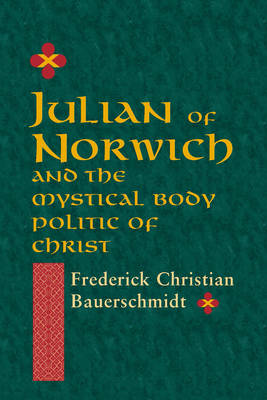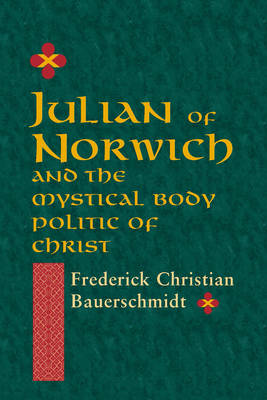
- Retrait gratuit dans votre magasin Club
- 7.000.000 titres dans notre catalogue
- Payer en toute sécurité
- Toujours un magasin près de chez vous
- Retrait gratuit dans votre magasin Club
- 7.000.0000 titres dans notre catalogue
- Payer en toute sécurité
- Toujours un magasin près de chez vous
Description
In May 1373, the English mystic Julian of Norwich was healed of a serious illness after experiencing a series of visions of the Blessed Virgin and of Christ's suffering. Her account, A Revelation of Love, is considered one of the most remarkable documents of medieval religious experience. In Julian of Norwich and the Mystical Body Politic of Christ, Frederick Bauerschmidt provides a close and historically sensitive reading of Julian's Revelation of Love that addresses the relationship between our understanding of God and our vision of human community. By locating Julian's images of Christ's body within the context of late medieval debates over the nature and extent of divine power, Bauerschmidt argues that Julian presents an alternative account of divine power in which the crucified body of Christ becomes the locus and shape of divine omnipotence. For Julian, divine power serves as the norm of all human exercise of power, rendering the possibility of the "mystical body politic of Christ"as the exemplary form of human community. In this reading, the theological is irreducibly political and the political is irreducibly theological. As such, Bauerschmidt shows Julian to be both a theologian of the first rank and one who "imagines the political."
Spécifications
Parties prenantes
- Auteur(s) :
- Editeur:
Contenu
- Nombre de pages :
- 304
- Langue:
- Anglais
- Collection :
- Tome:
- n° 5
Caractéristiques
- EAN:
- 9780268011949
- Date de parution :
- 15-02-22
- Format:
- Livre relié
- Format numérique:
- Genaaid
- Dimensions :
- 161 mm x 235 mm
- Poids :
- 621 g

Les avis
Nous publions uniquement les avis qui respectent les conditions requises. Consultez nos conditions pour les avis.






